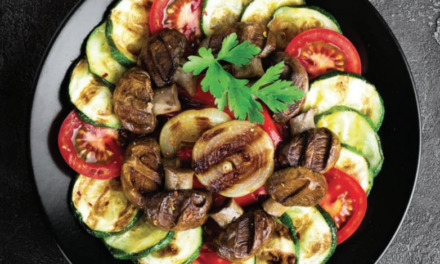
In case you were trapped on a deserted island with no internet for the past year, you might need to be informed that we just had a very contentious election season in the United States. Families were ripped apart, friendships were ended. Sides had to be taken and there was no room for moderation.
When did this all begin? Some have made the case that it started four years ago. Others contend that it goes back forty. And while pundits argue about the starting date of our political polarization, the roots of our need for absolutism may stretch further back than that, and right into our kitchen cabinets.
As the holiday season approaches and we gather our guilt for the sins of gluttony we are about to commit, we also start to contemplate which diet we’ll then switch to in order to atone. Very few of us have moderation on our minds. And at least as far as the kitchen is concerned, we have Dr. John Harvey Kellogg to thank for our extremism.
Back in the 1800s, Dr. Kellogg ran a health spa. But this was no ordinary health spa. Besides being a physician, Dr. Kellogg was also a religious man and he promoted abstinence from sex, alcohol, and meat. While the French and Italians were enjoying wine, rich foods, and the occasional tryst, Dr. Kellogg developed bland-tasting corn flakes in order to help curb American sexual appetites that he thought were stimulated by the consumption of delicious food. By his calculation, good food, like good sex, was something to be resisted, not enjoyed.
Fast-forward 150 years and we get a myriad of extreme diets that we are told will make our lives better, but that rarely do.
“Which diet works the best?” I’m often asked, especially this time of year.
Studies comparing low carb to low fat to calorie counting to intermittent fasting abound. And yet, we still don’t have an answer. The best anyone has come up with is that some diets work for some people and no diet works for everybody. In the short term, most diets result in weight loss and in the long term, very few do. Americans probably diet more than any other people on Earth and still, we have one of the highest rates of obesity in the world. It is estimated that 40% of Americans suffer from obesity while less than 20% of French people and fewer than 10% of Italians do. (https://www.oecd.org/health/obesity-update.htm)
How is it possible that the French and the Italians are eating richer food, dieting less, and still avoiding obesity?
In a word—moderation. Around the world, people who eat reasonable amounts of fresh food, are thinner. They don’t need to avoid entire food or nutrient categories. They simply eat sensibly, stopping when full. When we eat fresh, less processed food, our bodies are better at signaling us to stop eating. When we eat highly processed, so-called convenience foods, the off switch doesn’t work very well and we eat more and subsequently gain weight.
It turns out that Dr. Kellogg was sadly misguided. By processing his grains into more bland, less textured flakes, he wasn’t promoting health, he was launching us into an era of obesity. Instead of curbing our appetites, he was stoking them.
Extremism rarely plays out the way it was supposed to.
For this holiday season, it might do us good to resolve to look at our plates and instead of piling them high with things that we’ll regret later, instead make better choices upfront. More isn’t better, but deprivation isn’t right either. The key to health is to ignore the false promises made by overly processed, highly marketed foods and instead make the choice to consume real, minimally processed foods year-round. It’s much harder to fix the consequences of extreme choices than it is to just make good ones in the first place.






